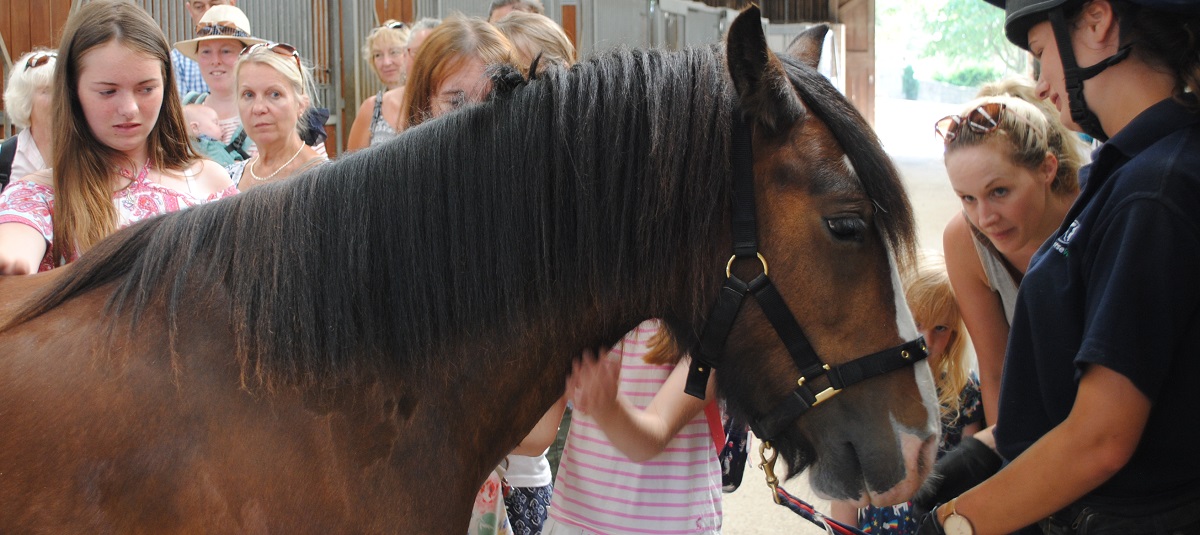
10 Nuggets we learnt from a recent yard visit to World Horse Welfare
Claire Dickie, the Manager at World Horse Welfare’s Glenda Spooner Rescue and Rehoming centre in Somerset gave 24 Harry Hall guests a terrific insight into the work they do. Here are some of the things we learnt in an insightful 3 hours:
1. The isolation unit is where horses and ponies are assessed on arrival and, in many cases, become slowly used to being touched and handled, and separated from others. Many have lived in herds so it’s important not to stick them in their own stable straight away - this will upset them and could lead to colic.
They’re kept here and given a full health once over, to protect other horses at the centre and to assess if they need immediate attention. “If they’ve come here underweight and in poor health, and are stressed from being moved, they will be susceptible to harmful germs and bacteria that can circulate on yards with a high volume of horses”, explains Claire.
2. Some ponies come in to the centre looking healthy but “it’s frightening how many of those you find are strangles carriers when you test their blood,” says Claire. Another common problem is an “astonishingly high" worm burden, which can take a good year to clear with a careful worming programme. Paddocks are cleared of droppings regularly using a special machine “vacuum” poo picking machine.
3. Neem oil is a popular treatment for sweet itch at the Glenda Spooner centre and is also a good fly repellant. Neem oil is an ingredient in our own Mastacare itch free lotion.
4. World Horse Welfare Farms are not horse sanctuaries, the best part of Claire’s job is getting a phone call from someone to confirm that they would like to re-home a pony. “It’s lovely knowing you’ve helped a horse or pony find a safe and secure home for life.”
5. Bristol veterinary school is a great supporter. They come once a month to treat and do minor surgeries at cost price. In return, the vet students are able to see rare conditions that they would not find on private yards, it’s educational for the students as well as the centre.
6. Being overweight is another common problem found with the horses and ponies that come in — each pony is monitored closely and weighed weekly using a weigh bridge.
7. Many horses start gaining tone and muscle strength by working in hand, over poles and doing ‘horse agility’ exercises before they are strong enough to be backed or ridden, this also builds basic life skills and confidence.
8. Less than half the animals being re-homed from Glenda Spooner farm go straight to be riding horses, though many more will become ones when they are old enough.
9. The Centre is pragmatic if a horse or pony is very difficult to re-home as a companion animal - eg if it has complex and expensive health needs or becomes anxious when on its own. In such cases it may be necessary to euthanise an animal rather than allow it to fill a place at the centre long term that could be used to save the lives of two or three other horses and ponies.
10. The care, attention and sensitive handling of these animals is phenomenal. Anyone who re-homes a World Horse Welfare horse or pony receives excellent support and a home visit at least once a year. Do consider taking one if you’re looking for a riding pony or a companion, it’s safe to say few animals come with such a great “support service”.
Learn more about World Horse Welfare, their centres and rehoming programmes.
